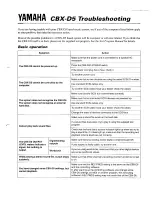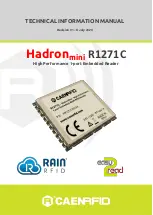
/
/
/
1
3(
)(
)(
)(
)(
)(
/ 1 3$
(7L63
3RZHUVXSSO\36
9$&
/RZYROWDJHGLVWULEXWLRQ
IRUH[DPSOH716V\VWHP[9
)()XQFWLRQDOJURXQGIRUGLUHFWGLVFKDUJH
RILQWHUIHUHQFHOHYHOVWRWKHPRXQWLQJUDLO
YLDVSULQJFRQWDFW
6DIHDUHD
0RXQWLQJUDLOIRU
FRQQHFWLRQRIFDEOH
VKLHOGV
(QFORVXUH([H
*URXQGEXV3$
%XVFDEOH
+D]DUGRXVDUHD=RQH
0RXQWLQJ
UDLO
Figure 5-2
Operating the ET 200iSP and PS 120/230 VAC with equipotential bonding
Equipotential bonding EB
Connect the following to the equipotential bonding EB
● The mounting rail of the ET 200iSP system (with the grounding bolts Ex e)
● The terminal module TM-PS-A/ TM-PS-A UC by means of the connection terminal EB
● The terminal module TM-PS-A/ TM-PS-A UC by means of the connection terminal EB
● Mounting rail for mounting the cable shields (with an Ex e-terminal)
DANGER
It is not permitted to connection the equipotential bonding EB to the PE conductor of the
supply system.
According to EN 60 079-14, equipotential bonding is mandatory in hazardous areas.
For more information on the equipotential bonding system, refer to the System Manual
"Principles of explosion protection (
http://support.automation.siemens.com/WW/view/en/
)".
Wiring
5.2 Operating the ET 200iSP with equipotential bonding
ET 200iSP
Operating Instructions, 11/2017, A5E00247483-07
107
















































